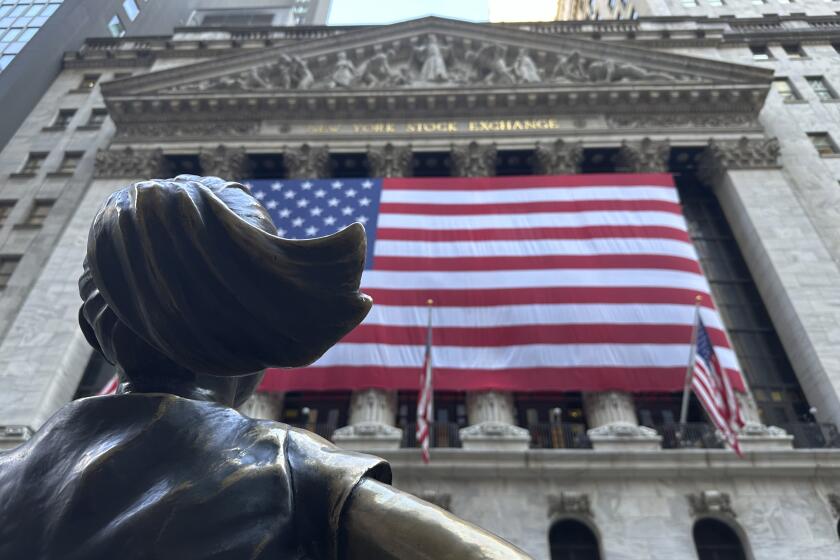Tax Rift With IRS Poses a Threat to Drexel Plan : Bankruptcy: The chief sticking point is whether the firm took legal tax deductions on pay to top executives.
The government and Drexel Burnham Lambert Inc. are far apart in settling a $5.3-billion tax claim that threatens to scuttle the investment firm’s bankruptcy reorganization, people involved in the case say.
Barring a late deal, the Internal Revenue Service claim will go to trial Friday. The issue is critical to ending the 16-month-old bankruptcy of Wall Street’s junk bond power of the 1980s.
The main sticking point is whether Drexel took legal tax deductions on more than $1 billion in compensation to seven top executives from 1981 to 1989--including some of the $550 million paid to financier Michael Milken of Encino in 1987.
The IRS argues that the payouts were too large and constituted dividend payments to shareholders, which are not deductible as a business expense. Drexel says the compensation was reasonable and legal.
Drexel and its creditors last month announced a complex agreement to divide the firm’s $2.6 billion in assets and allow it to emerge from Chapter 11 bankruptcy protection as an adviser to financially troubled companies.
The available money would satisfy only a fraction of the more than $20 billion in claims against Drexel. Creditors are prepared to call off the deal if the IRS receives a disproportionate share. Tax claims take high priority in bankruptcy cases.
“If they take all the money, that’s it,” said Thomas Barr, an attorney for the Federal Deposit Insurance Corp., which reduced its own multibillion-dollar claim. “If the plan collapses, we’re back to square one.”
If the IRS payout exceeds a certain designated level--which parties in the case are keeping secret--the bankruptcy could be converted to a Chapter 7 liquidation. That would leave creditors with far less money, which wouldn’t be paid until all claims are resolved, possibly over 10 years or more.
One individual involved in the talks said late last week that the IRS and Drexel were “hundreds of millions of dollars apart.” No deal was reached by Tuesday, but settlement talks were said to be continuing.
“The number they are at would totally blow up the deal,” the participant said.
Claims by two other federal agencies, the FDIC and the Securities and Exchange Commission, were resolved in the bankruptcy reorganization plan. So, in effect, one government agency is holding up a deal that two other agencies have endorsed.
“We have always taken the position that as another government agency we have to respect the IRS’ position,” said Richard A. Kirby, the SEC’s chief litigation counsel. “We’re not in a position to foster compromise on this issue because essentially we would be opposing the IRS.”
A trial would take place before U.S. Bankruptcy Judge Francis Conrad in Manhattan. He would determine how much Drexel should have been permitted to deduct from its taxes as employee compensation.
The IRS filed its claim in February and last month reportedly agreed to cut about $2 billion from the total, but the demand still was far too high for Drexel.
The IRS audited Drexel records through the end of April but was rebuffed in a bid to extend its investigation. The IRS claimed that Drexel impeded the search, while the firm said it provided “literally . . . rooms full of documents,” court documents show.
The documents state that the IRS disallowed $1.4 billion in compensation deductions by Drexel.
Under federal law, companies are permitted to deduct from their taxes “reasonable” compensation as a business expense. Tax law experts said the size of employee pay rarely is the deciding factor.
In addition to compensation, the two sides also remain at odds over when Drexel can deduct $150 million still owed to an SEC fund to compensate investors harmed by the firm’s illegal activities.
More to Read
Inside the business of entertainment
The Wide Shot brings you news, analysis and insights on everything from streaming wars to production — and what it all means for the future.
You may occasionally receive promotional content from the Los Angeles Times.






